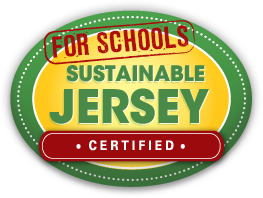Sustainable Jersey Publications
Sustainable Jersey produces guidebooks, reports, and other publications to keep its programs current with best practices and assess the overall impact of our collective efforts. The publications listed below by topic area may be of interest to district and school administration, staff, students, and others interested in sustainability in general.
Climate Change Education
Report on K-12 Climate Change Education Needs in New Jersey
February 2022
In June 2020, New Jersey became the first state in the U.S. to incorporate K-12 climate change education across content areas when the State Board of Education adopted the 2020 New Jersey Student Learning Standards. In response to the standards change, the New Jersey School Boards Association and Sustainable Jersey convened the Climate Change Education Thought Leader Committee to determine an appropriate plan for implementing these standards statewide. The committee met for several months, working to identify needs related to climate change education. This report summarizes the committee’s 34 recommendations, focusing on the areas of professional learning, curricular resources, community-based climate change education and what boards of education can do to support this process.
Energy
Alternative Fuel Vehicle Procurement Guide
June 2020
The Sustainable Jersey Alternative Fuel Vehicle Procurement Guide provides information and resources for municipalities and school districts looking to add alternative fuel vehicles (AFVs) to their fleets. This guide includes strategies for procuring alternative fuel fleet vehicles at the best pricing and with the least amount of staff time spent on procurement logistics. Procurement methods covered in this guide include fleet vehicle leasing; purchasing cooperatives and government purchasing contracts; direct purchase; and service contracting and shared services. The guide also includes information on funding and incentives for alternative fuel vehicles and electric vehicle charging stations.
How to Implement an Energy Savings Improvement Plan: Sustainable Jersey How-To-Guide
August 2019
This guidebook, developed by Sustainable Jersey and sponsored by the New Jersey Board of Public Utilities, explains the process from beginning to end in straight forward and easy-to-understand language. Case studies of successfully implemented ESIPs are included and an exhaustive list of resources are also provided to guide local government units successfully through the ESIP process.
Food Waste
Reduce, Recover & Recycle Food Waste - Sustainable Jersey Toolkit for PreK-12 Schools
December 2023
This toolkit, produced by Sustainable Jersey and Rutgers Cooperative Extension, provides guidance, resources, and examples for addressing food waste while also promoting healthy food and addressing food insecurity. It covers a range of topics that include: performing waste audits; reducing and recycling organic food waste as well as waste from food packaging and single-use items; recovering uneaten food; training staff on and implementing food service best practices; educating and engaging students; running school-wide campaigns; and using school gardens to promote sustainable food knowledge and behaviors. The toolkit also highlights the Sustainable Jersey for Schools actions that correspond to the food waste reduction practices presented.
Remote Learning
Remote Digital Learning Roadmap
August 2020
The Remote Digital Learning Roadmap is a primer and a practical guide for New Jersey schools, districts, and teachers to help them implement remote learning programs that provide every student with the best education possible, with as little disruption as possible, when schools are forced to limit in-person instruction. It uses research and gathers what many districts have learned to characterize the current state of the field and provide guidance and examples for schools implementing remote digital learning.
Social Equity
Advancing Social Equity through the Sustainable Jersey Program: Analysis and Potential
January 2020
This report documents the initial outcomes of the Sustainable Jersey equity initiative (2017-2019): a shared framework for understanding social equity; the results of a screen of the entire suite of actions for potential equity impacts; and a quantitative analysis of municipal certification and grant awards with respect to equity variables. It concludes with a discussion of next steps for comprehensively integrating social equity in the program to support municipalities to dismantle barriers to opportunity in their communities and across the state of New Jersey.
Sustainability
Sustainable State of the State Reports
In 2015 the first Sustainable State of the State Report (SSSR) was issued following a two-year process of stakeholder engagement, research, and expert consultation to evaluate the current state of sustainability in New Jersey. The report suggests 57 goals that define our vision of sustainability for New Jersey as a whole. Each goal has indicators that provide clues as to how the State is doing in achieving these sustainability goals. Each goal is assessed based on whether the indicators and other data suggest we are making adequate progress. The reports consist of a Summary Report and Technical Report. The summary reports provide an update on the goals and indicators, while the technical reports contain the data, sources and analysis that support the summary reports. These reports are typically released at Sustainable Jersey's annual Sustainability Summit in June.
Statewide Change, One Community at a Time: A Comparative Study of Collaborative State-Local Sustainability Programs
April 2016
This study identifies twelve statewide programs across the U.S. that recognize local governments for achieving voluntary sustainability standards. Certification or other municipal rating systems are generally a signature element of these programs; yet, certification is often merely the most visible form of collective action among many aiming to coordinate priorities, policy, and resources among state and local, public and private actors.
Funded by the Surdna Foundation, this study was guided by a working group comprised of representatives of five state-local sustainability programs including: Minnesota GreenStep Cities, Sustainable Maryland, Sustainable Pennsylvania, Wisconsin Green Tier Legacy Communities and Sustainable Jersey. Key personnel from Green Cities California, Clean Energy Communities (CT), the Florida Green Building Coalition, Massachusetts Green Communities, Michigan Green Communities, Climate Smart Communities (NY) and Go Green Virginia also contributed to the report.
